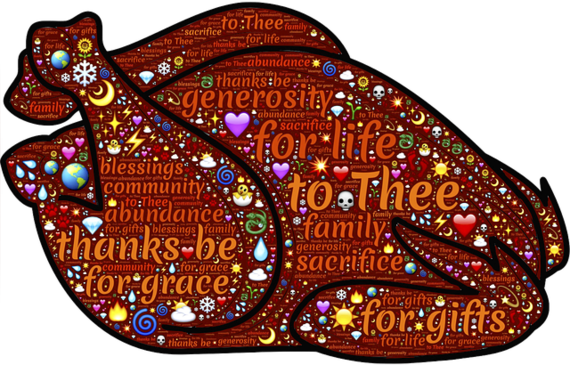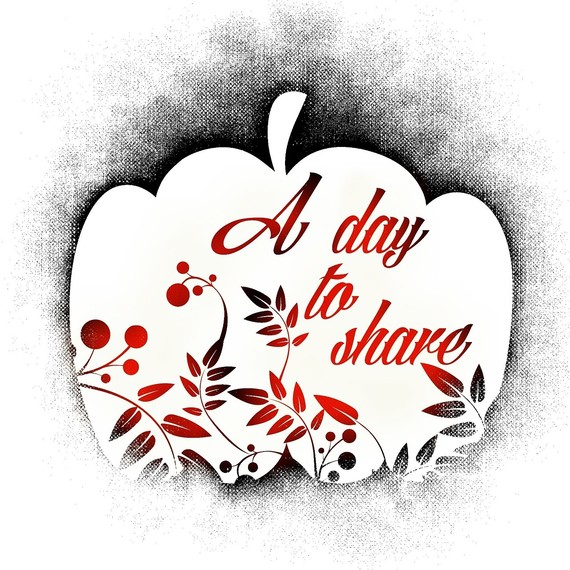Every year in November, we are supposed to think of all the things we have to be grateful for: family, food, friends, health. But this Thanksgiving, I want you to try something very different: Make a mental list of all the reasons you are not thankful and not in the mood to fake it. Yes, you read correctly: I am saying list all the reasons you feel thankless and ungrateful. It's a mental exercise that may prove to be very eye opening.
Thankful and thankless follow one another in the dictionary; so close together in a book, yet so far apart in meaning. When you are thankless, you are empty and without. You feel deprived -- full of yearnings and longings. In contrast, when you are thankful, you are full and have everything you need. These states of mind can shift from hour-to-hour and day-to-day depending on actual events, as well as on your unconscious thoughts.
When making your un-thankful list, anything goes. You can write down everything from your misfortunes, to undesirable inner traits, to materialistic wants, to your deficits. You can include things you'd like to be different about your physical appearance (the mole on your face you wish would disappear) and even your children's problems. You may wish that you felt inner peace instead of constant waves of stress. This list can be as exhaustive or as limited as you wish. What is important is that you accept the ways in which you are ungrateful.
The next step, chances are, you won't like. I want you to take each quality you listed and extract the positive from it -- find the silver lining. So if you wish you could get rid of the mole on your face, imagine that someone you admire has that same mole. Suddenly you see her mole as exotic, or perhaps you imagine it makes her look smart. If that seems too difficult, imagine a friend confiding in you the things she doesn't like about her life. You would empathize and try to understand her experience. Perhaps you would ask her questions hoping to come up with new thoughts on solving her dilemmas. Maybe you would secretly think about the ways in which she was actually lucky. It is far easier to see the bright side when you're not the one struggling. You'd probably suggest she was being too hard on herself. So why not cut yourself the same slack? Show yourself some acceptance.
The point of this exercise is to practice feeling as much compassion for your ungratefulness as you would others. Experiencing empathy towards yourself will allow room for "thankful." It's your turn to be your own best friend by accepting your bitter thoughts and feelings. It is only when you let yourself absorb your own thankless list that you have the space to feel genuine gratitude. And feeling gratitude can actually improve your psychological health by reducing toxic emotions like envy, resentment and regret. Essentially, feeling gratitude and being thankful ups your happiness and reduces depression.
So this Thanksgiving, don't fake it -- really feel it. Instead of going thru the motions -- saying what you should be thankful for -- dig deeper. Explore why you are thankless too. You can't be truly thankful without paying attention to the ways you feel thankless. And don't stop after Thanksgiving. Keep up this exercise year round and learn to really appreciate your life's blessings.



